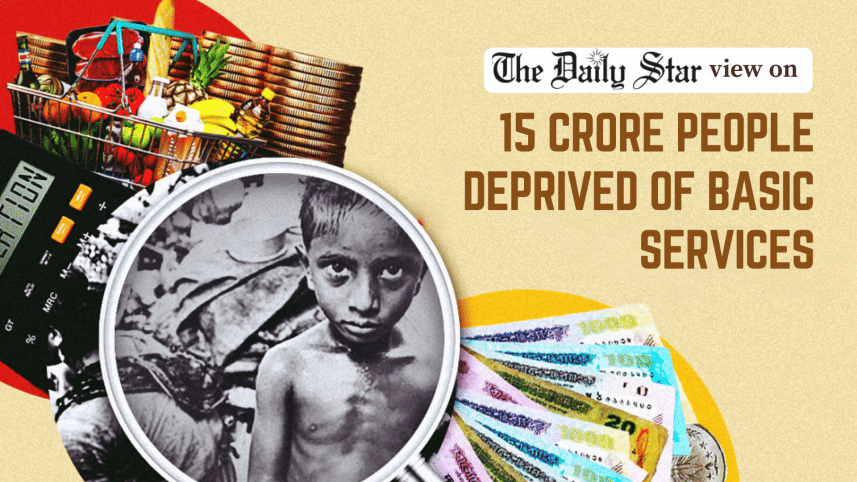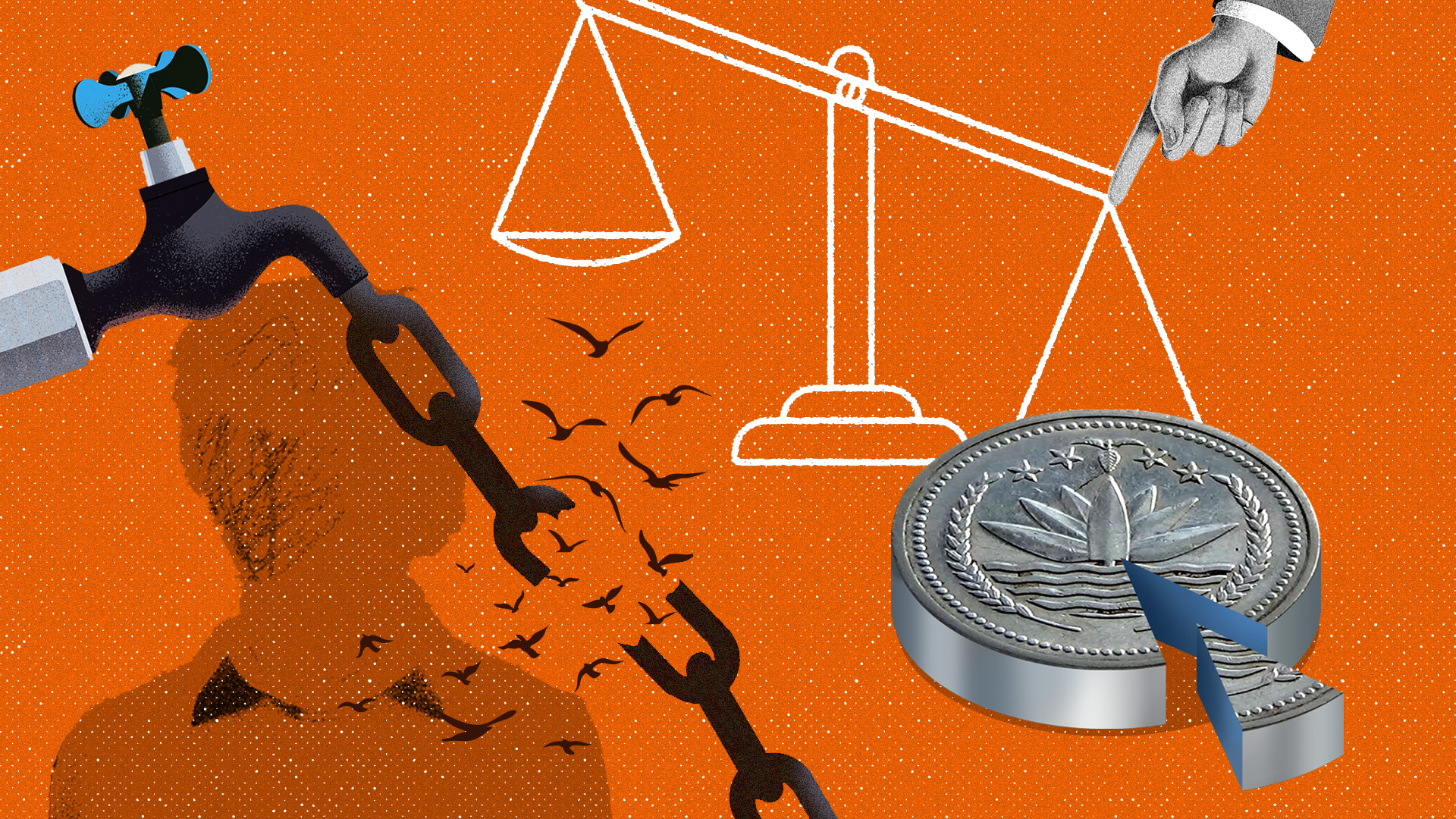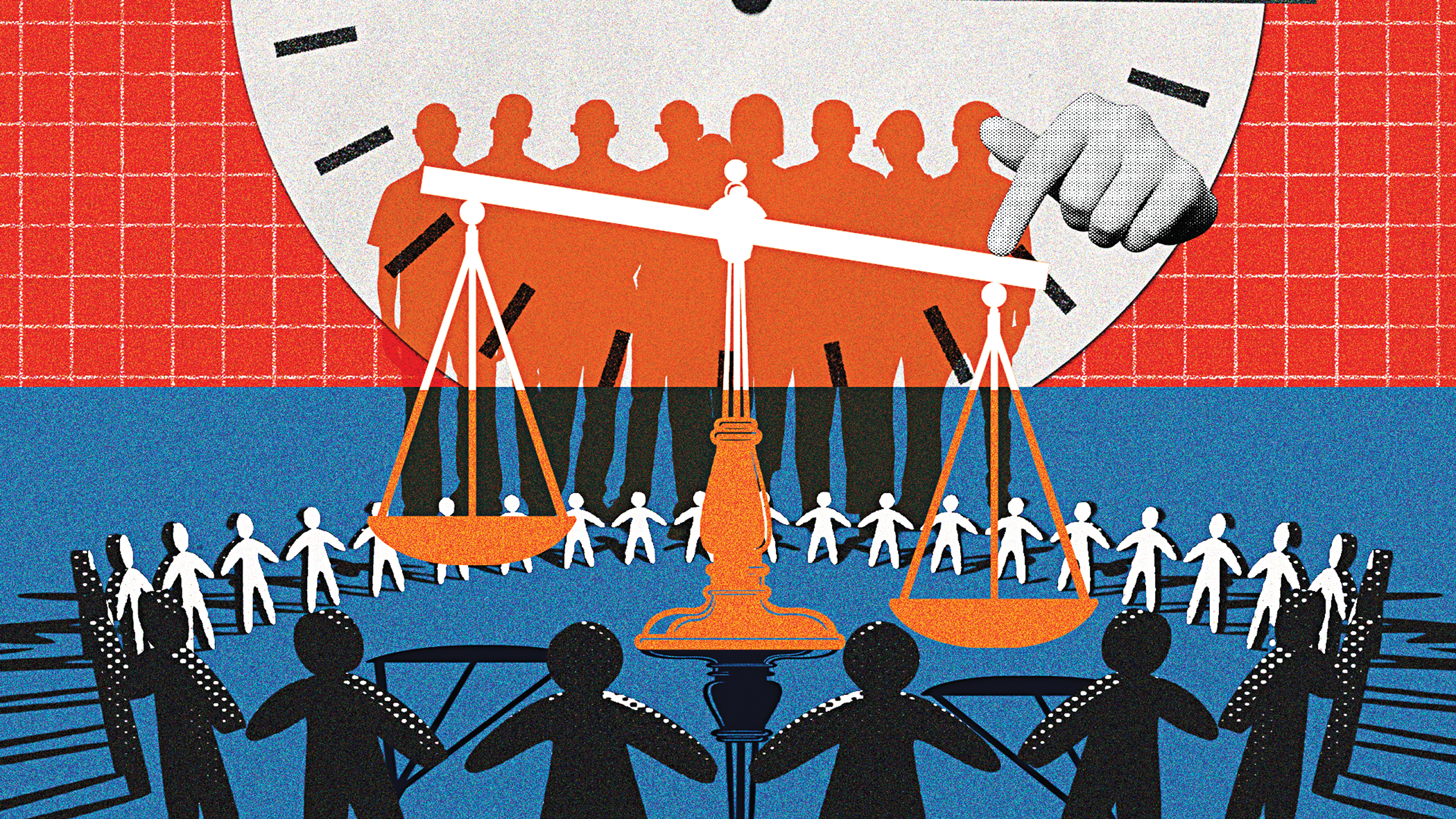We must do more, and better, to address inequalities

The findings of the recently unveiled National SDG Report 2025 highlight, once again, the deeply unequal nature of whatever progress Bangladesh has achieved over the years. According to a report based on the study, prepared by the Citizen's Platform for SDGs in collaboration with the government and the UNDP, a whopping 87.5 percent of the population—or 15 crore people—do not have access to all eight basic services, namely clean drinking water, basic education, sanitation facilities, hygiene facilities, clean fuel and technology, basic information services, basic mobility in rural and urban contexts, and basic waste collection services. This means that a vast majority of the citizens are facing persistent risks and hardships due to inadequate infrastructure and policy failures.
There are many other aspects related to these struggles. For instance, per the study, more than 26 percent of the population remains food insecure. Maternal and infant mortality rates remain high in a number of districts, while entrenched disparities persist between rural and urban areas, with the Chittagong Hill Tracts (CHT) and other poorer regions bearing the brunt. The picture is even grimmer for the most vulnerable segments of the population. Dalit and Adibashi communities, for instance, remain trapped in traditional, caste-determined occupations due to stigma and limited access to education and skills development. Approximately 8.9 percent of children are also engaged in economic work, with a third of them performing hazardous labour.
The report also highlights our fragile gains in poverty reduction, the persistent gender gap, and the disparities in education in terms of both access and quality. These findings are consistent with that of other recent studies and surveys that together paint a worrying picture of the ground realities facing poor and marginalised communities. It confirms that our development policies are not working as well as they should; instead, they are helping sustain inequalities year after year.
We must reverse this trend. First of all, our approach to governance must change. The authorities must prioritise inclusive development, rather than focusing on GDP figures that mask deeper inequalities. At the same time, political parties must play a greater role by integrating measurable SDG commitments in their manifestos and supporting programmes geared to that goal. We need tangible action for tangible outputs—proper data collection to list all vulnerable households, targeted policy interventions to address disparities, and increased investment in social infrastructure to increase access to essential services. Governance reforms are also crucial as corruption and inefficiency in public service delivery are directly linked to exacerbating inequalities. We must address all these interconnected issues for sustainable progress.



 For all latest news, follow The Daily Star's Google News channel.
For all latest news, follow The Daily Star's Google News channel. 


Comments